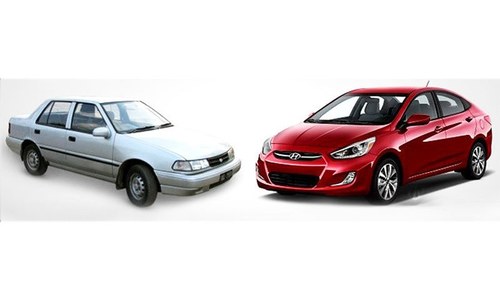KARACHI: The new five-year auto policy has ruffled the feathers of car makers and vendors who think the government has “penalised the existing players who have played a big role in developing the local industry”.
A leading car maker, who asked not to be named, said the government had not offered a level-playing field to the existing players and tilted the framework to the benefit of new entrants.
He counted contribution of car makers to the economy. They invested billions of rupees besides providing jobs, saving foreign exchange and assuring the government of introducing new models, but the government is not ready to acknowledge their role. “I don’t think incentives to new entrants with tax and duty benefits will yield results.”
In the Automotive Development Policy 2016-21, the government has kept age limit for import of used cars at three years. “The government should have taken measures to curb arrival of used cars to support the local industry,” he said. “If the situation is difficult for existing players why would foreign car makers invest?” he wondered.
Mumshad Ali, the chairman of Pakistan Association of Automotive Parts and Accessories Manufacturers (Paapam), said the basic thrust should have been to provide incentives to both existing and new entrants simultaneously. Sadly, it seems that the auto policy is narrowly focused on new entrants.”
He feared missing the goal of achieving seven per cent growth by 2018.
Currently, four of the top 10 global auto assemblers are producing cars in Pakistan, utilising up to 70pc local parts. The sector is supported by 3,000 auto parts manufacturers (APMs) providing three million direct and indirect jobs.
Mr Ali said that since 2013 the auto policy formulation was being spearheaded by Muhammad Zubair, the minister for privatisation, however, in the final stages the task was taken over by Board of Investment (BoI) Chairman Miftah Ismail, who was never a part of consultations with part makers, he said.
The Paapam chief requested the finance minister to address the three “key shortcomings” of the auto policy. First, the special economic zone (SEZ) incentives to auto part makers on setting up new capital-intensive plants to produce parts that have not yet been produced in Pakistan must be incorporated as committed to Paapam.
Second, existing assemblers, on condition of setting up a new greenfield plant, should also be granted the same incentives as new entrants, albeit for a shorter period of two years.
And third, used car imports under the garb of gift, baggage and transfer of residence (TR) schemes needed to be curtailed.
In 2015, Pakistan imported around 45,000 used vehicles with sales value of Rs67 billion. “Had these vehicles been produced in Pakistan with local parts, a total of 143,000 jobs could have been created,” he said.
Association of Pakistan Motorcycle Assemblers (APMA) Chairman Mohammad Sabir Sheikh said the new auto policy had nothing for Chinese-bike assemblers.
He said a number of Chinese-bike assemblers were either on the verge of collapse or struggling for their survival, but the government looked least bothered.
The bike industry had been surviving on old policies when one dollar was equal to Rs60, he said, adding that no tariff incentives had been given when one dollar now equals Rs106.
All Pakistan Motor Dealers Association (APMDA) Chairman H.M. Shahzad said used car importers were ignored in the new policy. “Used car dealers have never asked for any duty reduction, whereas the local car assemblers are given duty concession without any condition of consequent price cut.”
He said the government should have allowed import of used cars on a commercial basis which was already allowed to the assemblers in the form of new completely built-up units.
Mr Shahzad pointed out that 80pc of all used cars imports comprised 660cc units, which were not assembled in Pakistan.
Published in Dawn, March 22nd, 2016














































